In the Know | Stone Table Tops
Answering your questions on stone table tops Marble, Granite Quartz and new-comer Terrazzo.
Stone is a natural material, quarried all over the world. Depending on the location, height of the quarry and supply, stone table tops can vary in colour, strength, availability and cost.
Marble
Quarried worldwide, marble is a highly desirable natural material, used often in high-end restaurants, hotels and contemporary spaces.
The higher up in the quarry marble is taken from, the stronger and more affordable. Marble from lower in the quarry is deemed more attractive due to its veining but this will also make it more delicate and therefore more expensive. Our most cost effective marble is Carrara, quarried in Italy, however being predominately white, this marble is at risk from staining.
Marble is very porous so is susceptible to staining and acid etching if it comes into contact with liquids such as tea, coffee, vinegars, alcohol and can etch from hot teapots, forcing the condensation trapped underneath, into the marble.
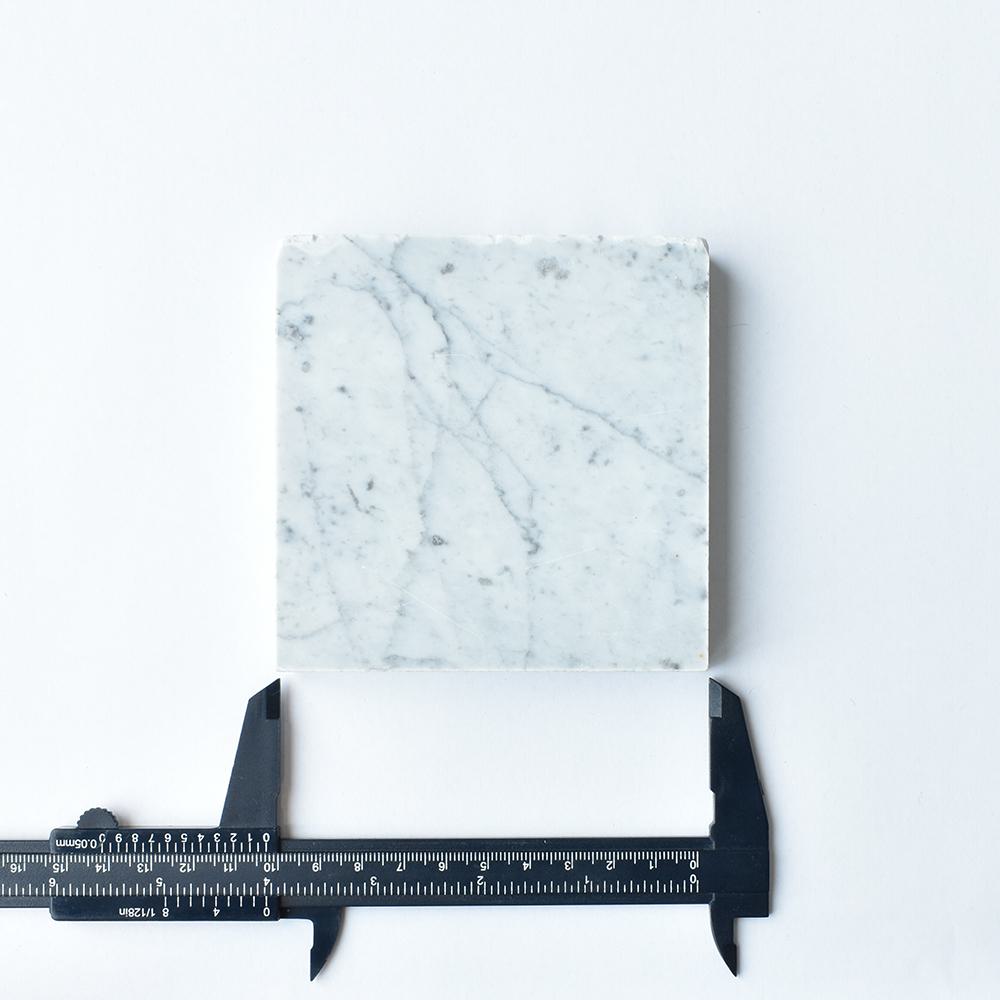
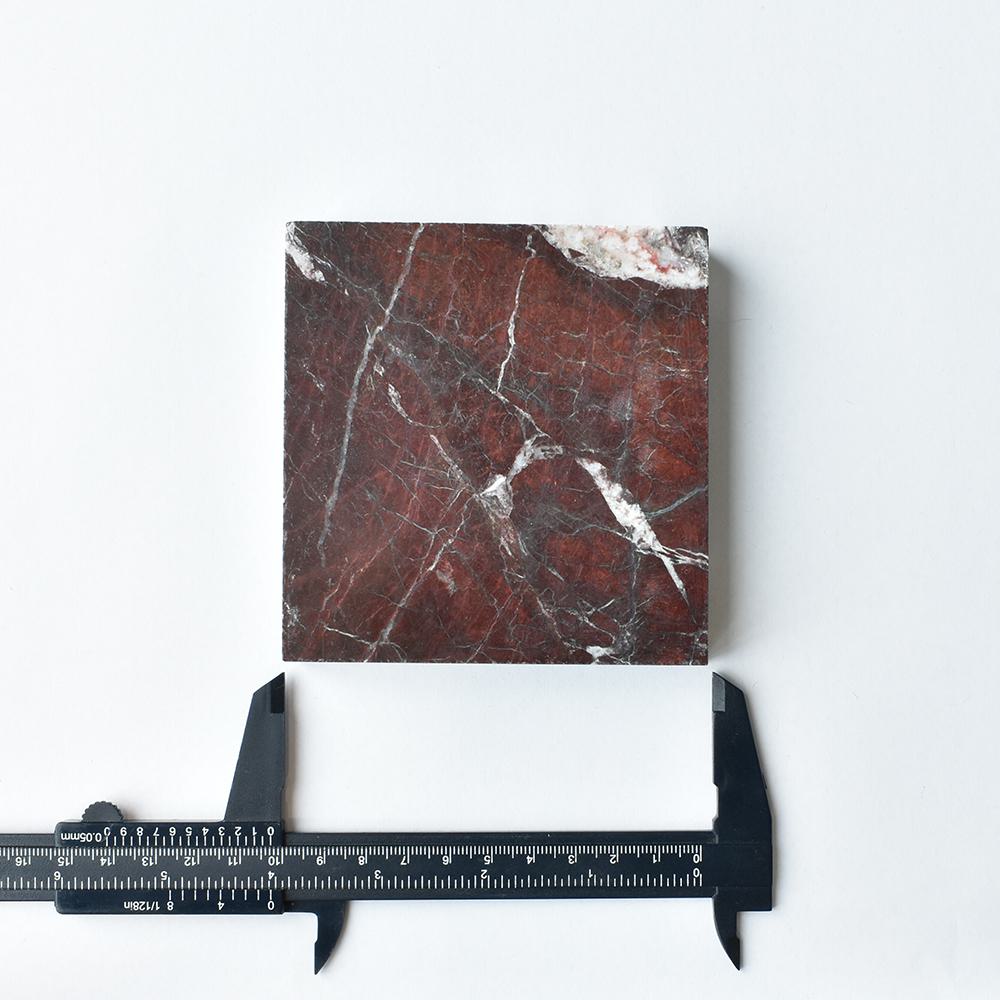
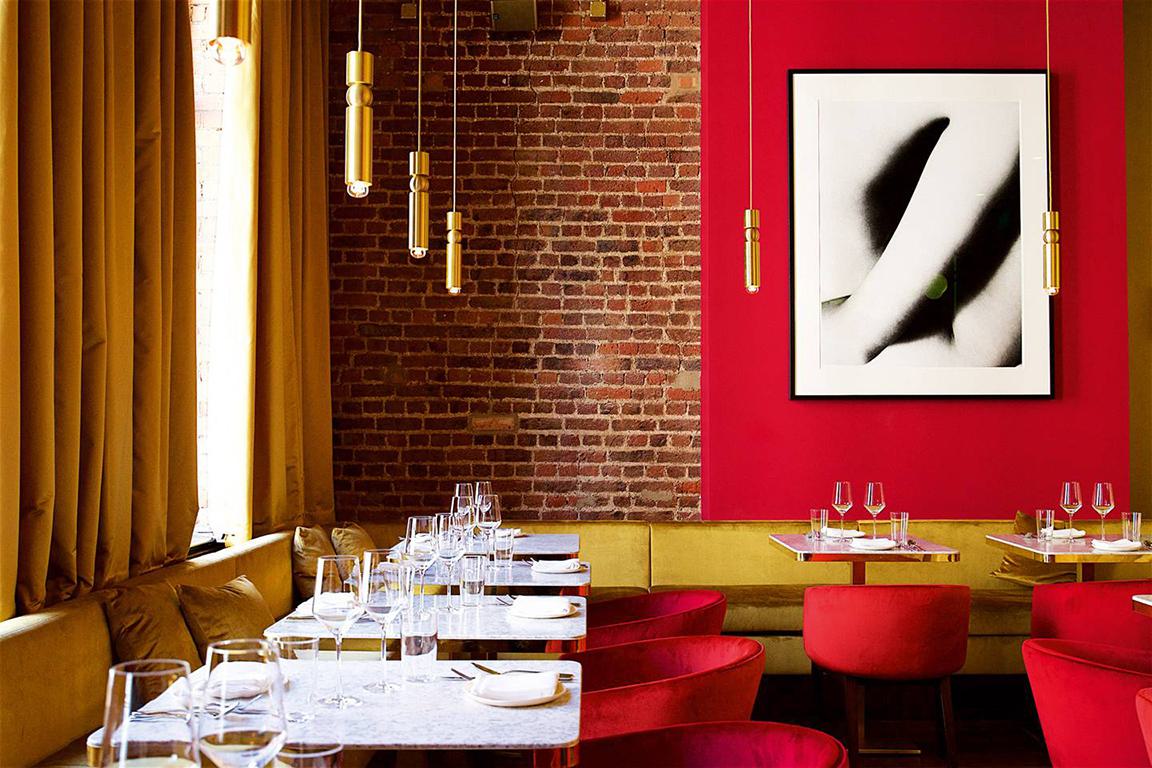
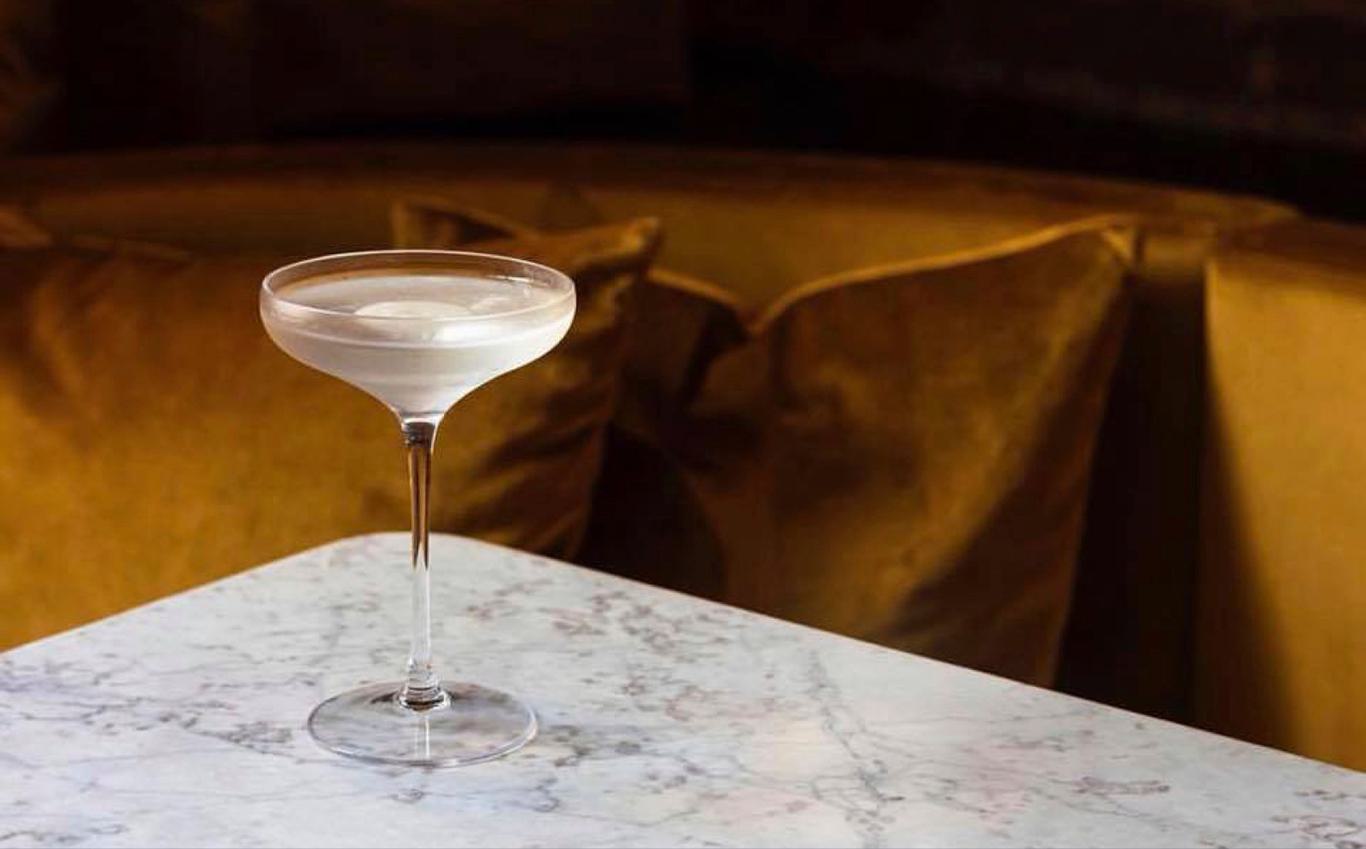
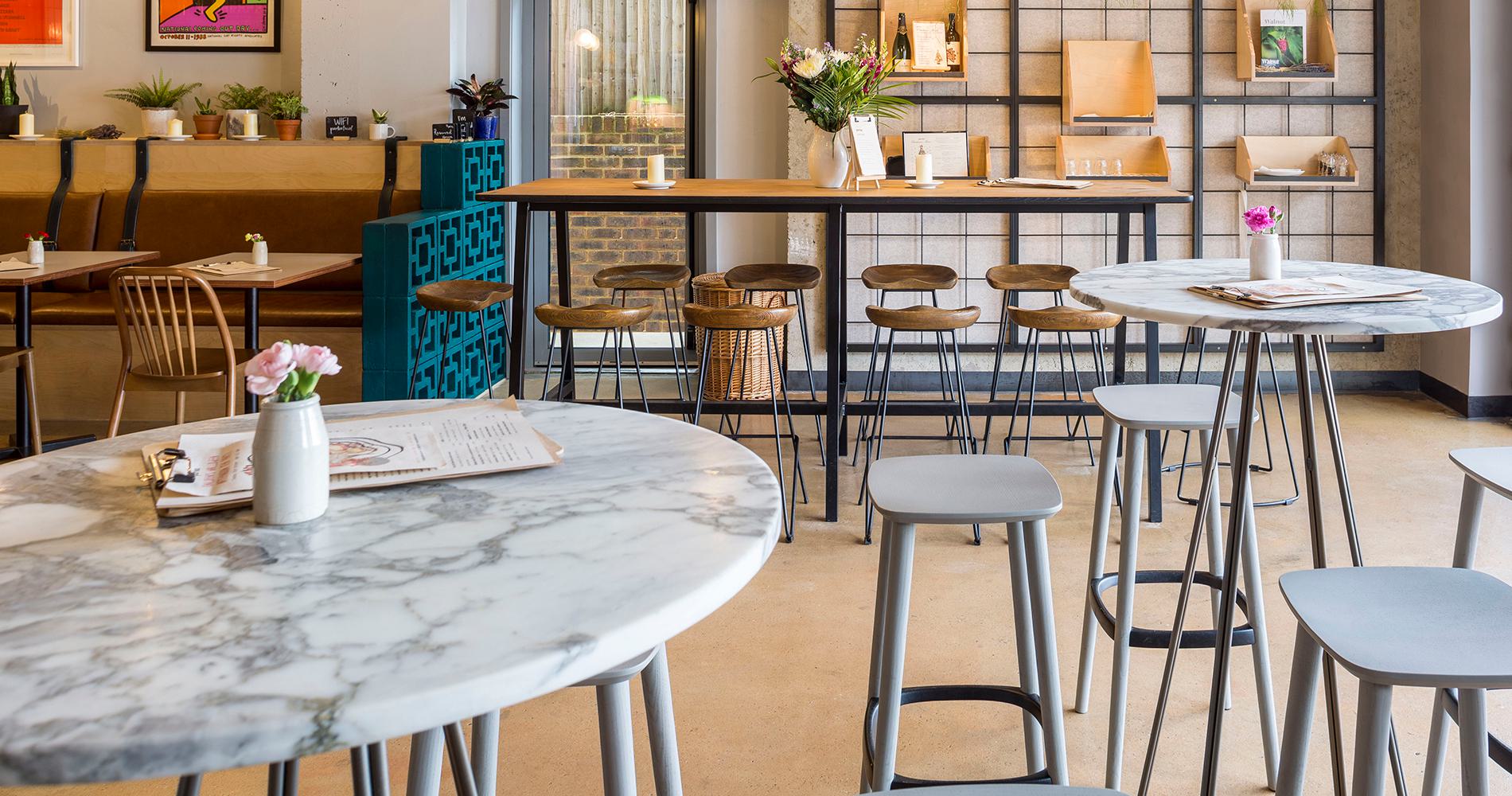
Granite
Granite is a hard wearing naturally occurring material made up of a combination of elements, including quartz. It's much heavier than marble so make sure you pair with an appropriate table base that can support the weight.
Suitable for outdoor use, Granite provides a reliable stone that has a range of types and colouring available, but most importantly it is not as porous as marble, so makes as an excellent material choice for restaurant table tops.
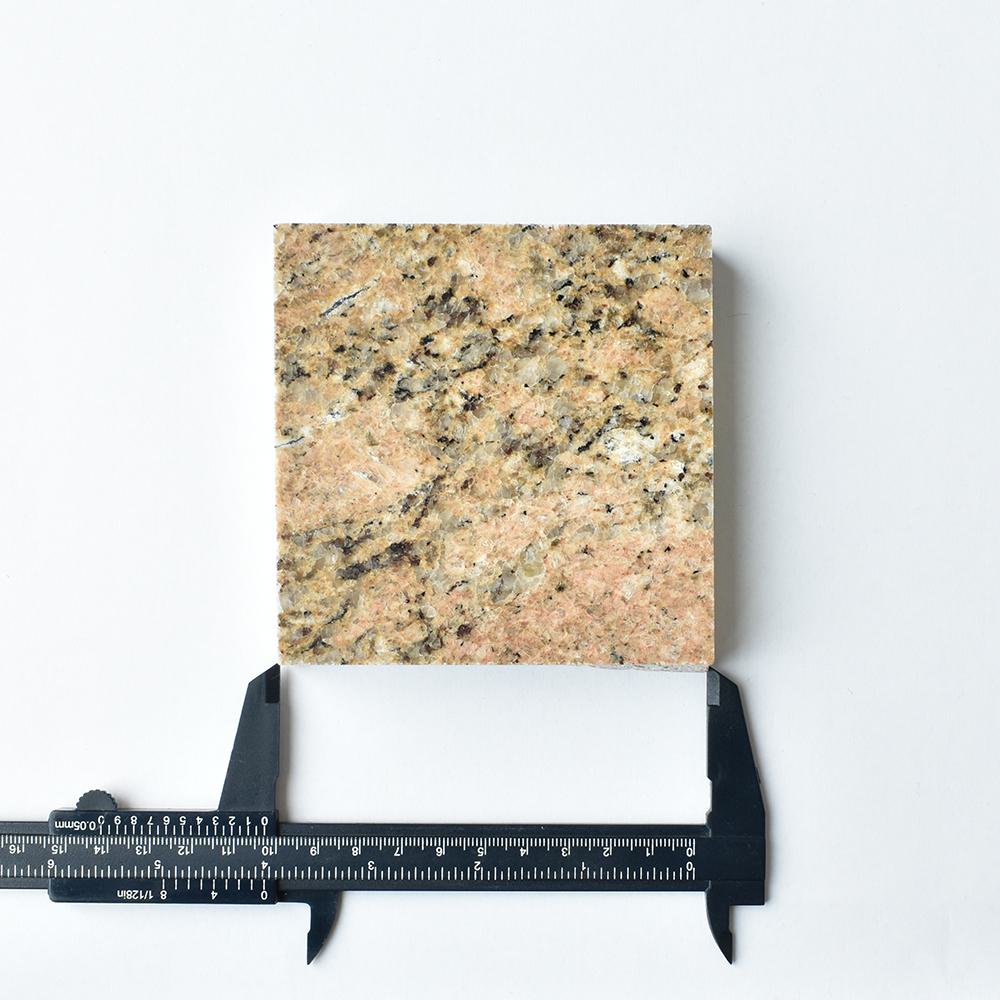
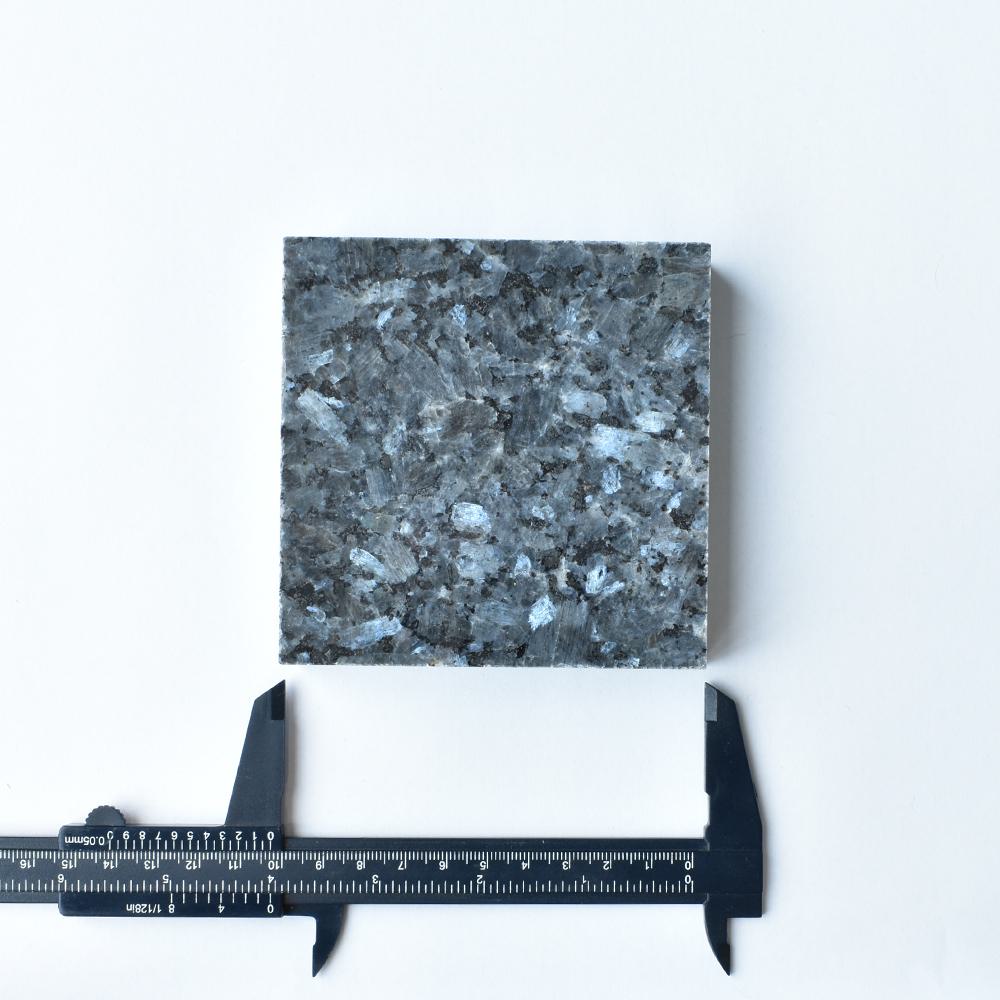
Quartz
Quartz is a man-made stone material made from compressed natural quartz. It is highly durable and strong but also very expensive.
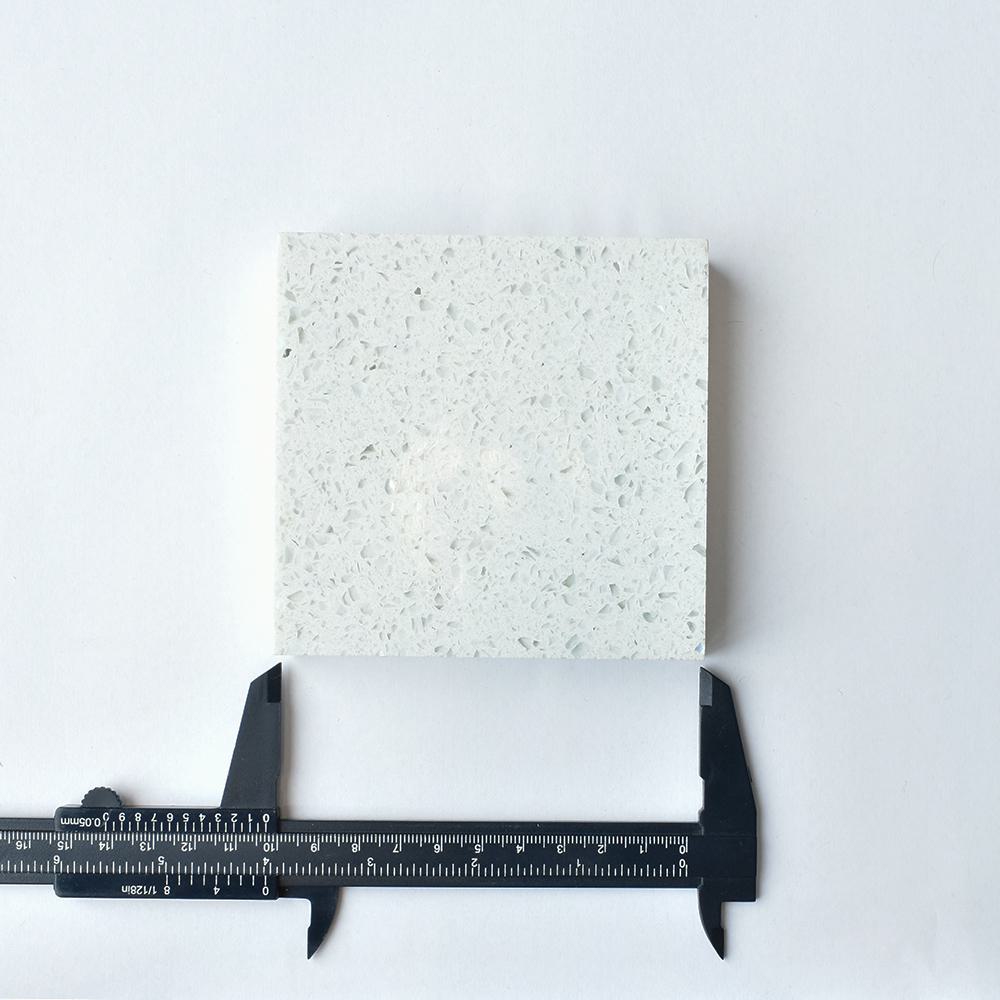
Key takeaways: What's the difference between marble, granite and quartz?
- Marble is porous and has characteristic veining, marble cannot be used outside
- Granite is much less porous, is hard-wearing and can be used in outdoor areas
- Quartz is man-made, highly durable and not porous. It can be specified for exterior settings
Terrazzo
Terrazzo is traditionally used in Italian homes for flooring. A new material for contract furniture. Terrazzo is man-made from marble chips and bound traditionally in concrete, although resin can also be used as a binding agent. These materials combine to form a beautiful and unique product.
However, concrete and marble are both highly porous. That means terrazzo is just as easily stained as marble.
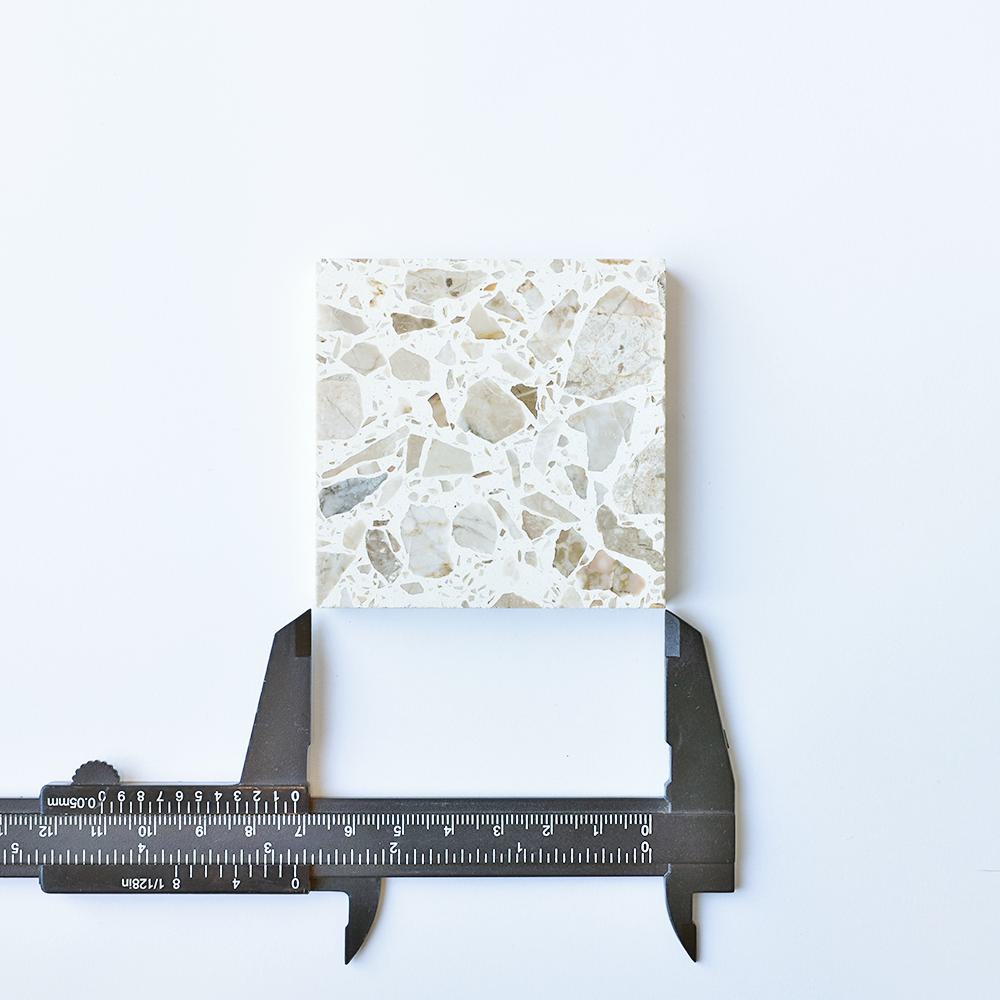
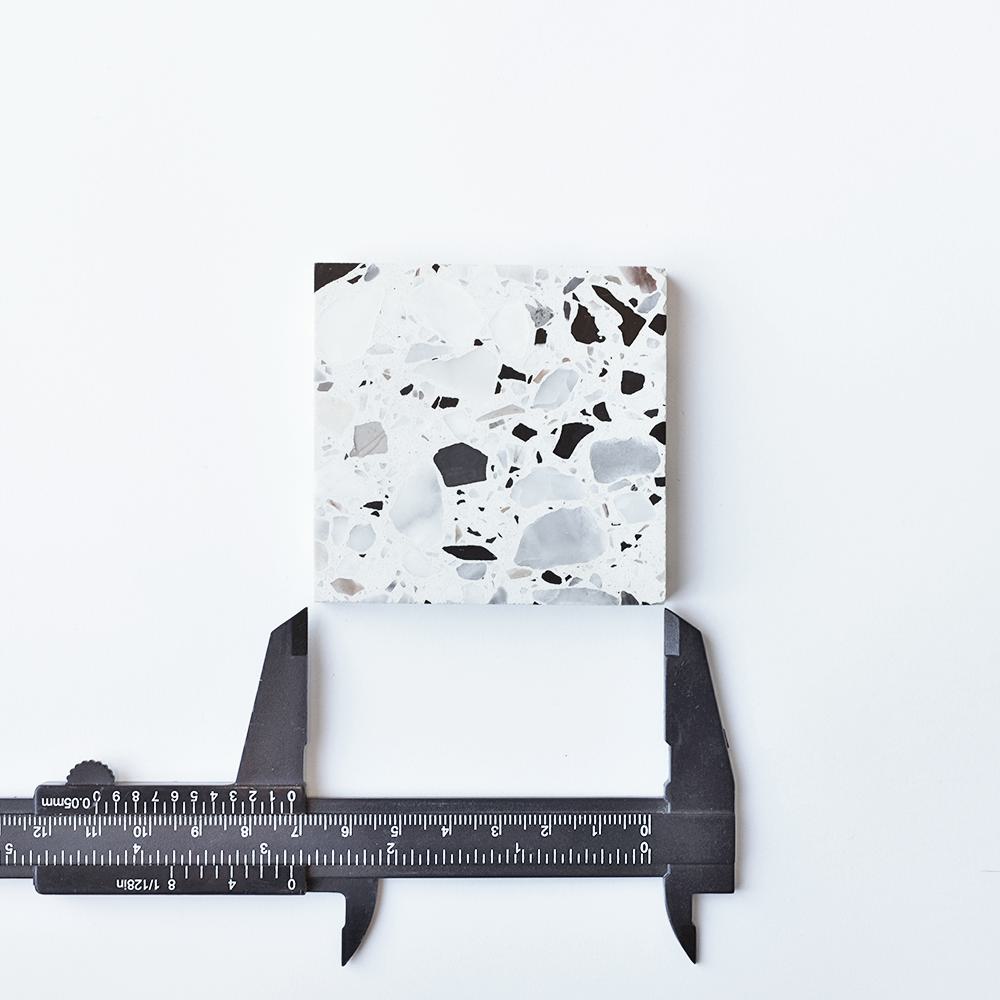
How to finish your stone, polished or honed?
Honed
A honed finish is created by smoothing the surface of the stone. This gives a lovely matte look that preserves the stone's natural beauty. Honed tops will scratch more easily than polished tops.
Polished
Polishing enhances the look of the stone, generally making it look darker. You can polish a stone table top with a high or low shine. A polish will help to resist staining but won't prevent it.
These finishes on stone table tops will need regular maintenance and proper care. You should re apply sealant to your honed marble or refresh the polished surface often.

Table top edge profiles
A table top made from stone can be cut to a variety of shapes from a simple square edge to Reverse Chamfer. It is recommended that with marble and terrazzo table tops, the edges and especially the corners of a square top should be rounded to avoid damage and chips if they're knocked.
You can see below the range of different edge profiles that can be used for stones with the Du Pont and O. GEE edges being suitable only for marble.
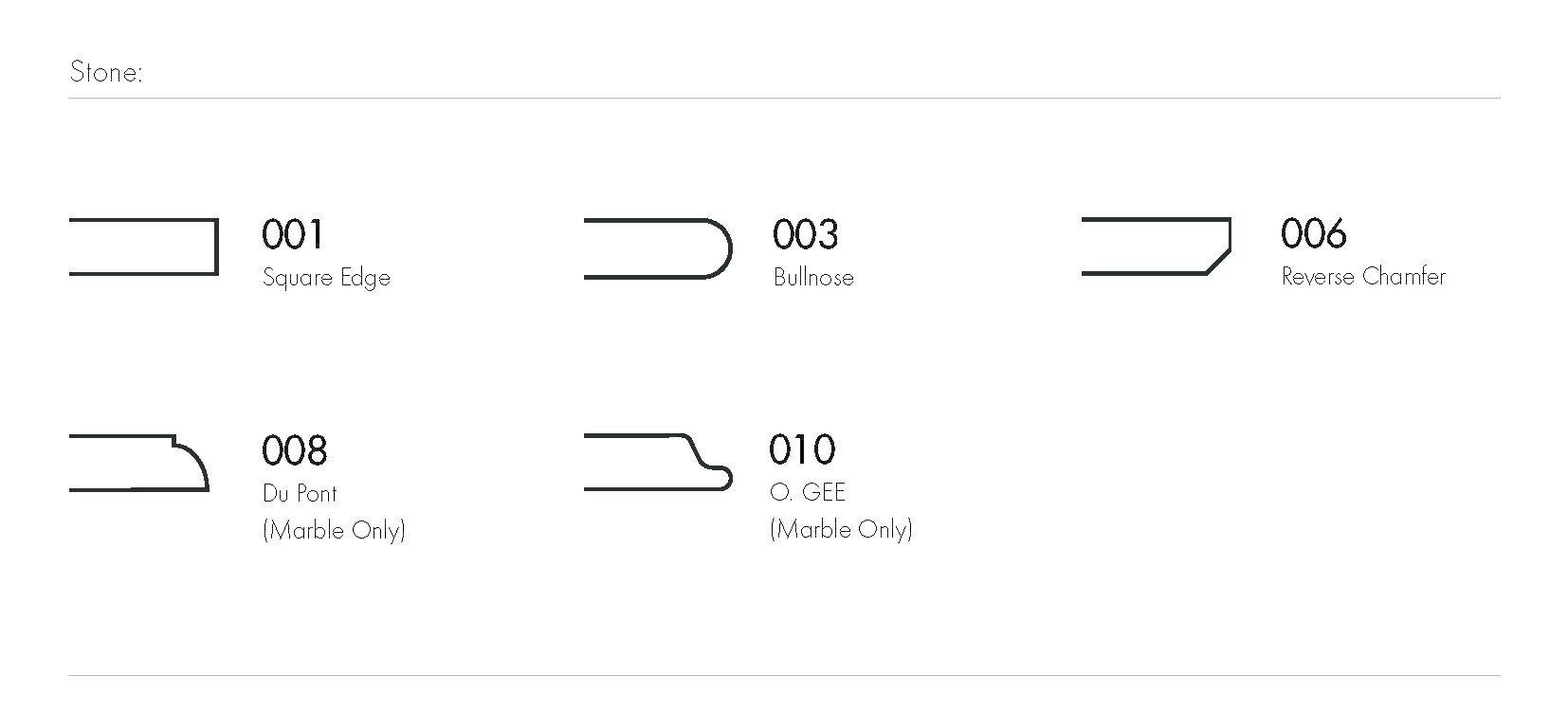
Related Products
Looking for a particular product?
Inside inspiration
Join us on Instagram to follow our recent projects.
Inside Out Contracts
Building 16, 42 Creek Road, London SE8 3FN
Sales: +44(0)20 8305 3130
Production: +44(0)20 8305 3136
Design: +44(0)20 8305 3139
Company No. 02841010
VAT No. 752 0164 61










































